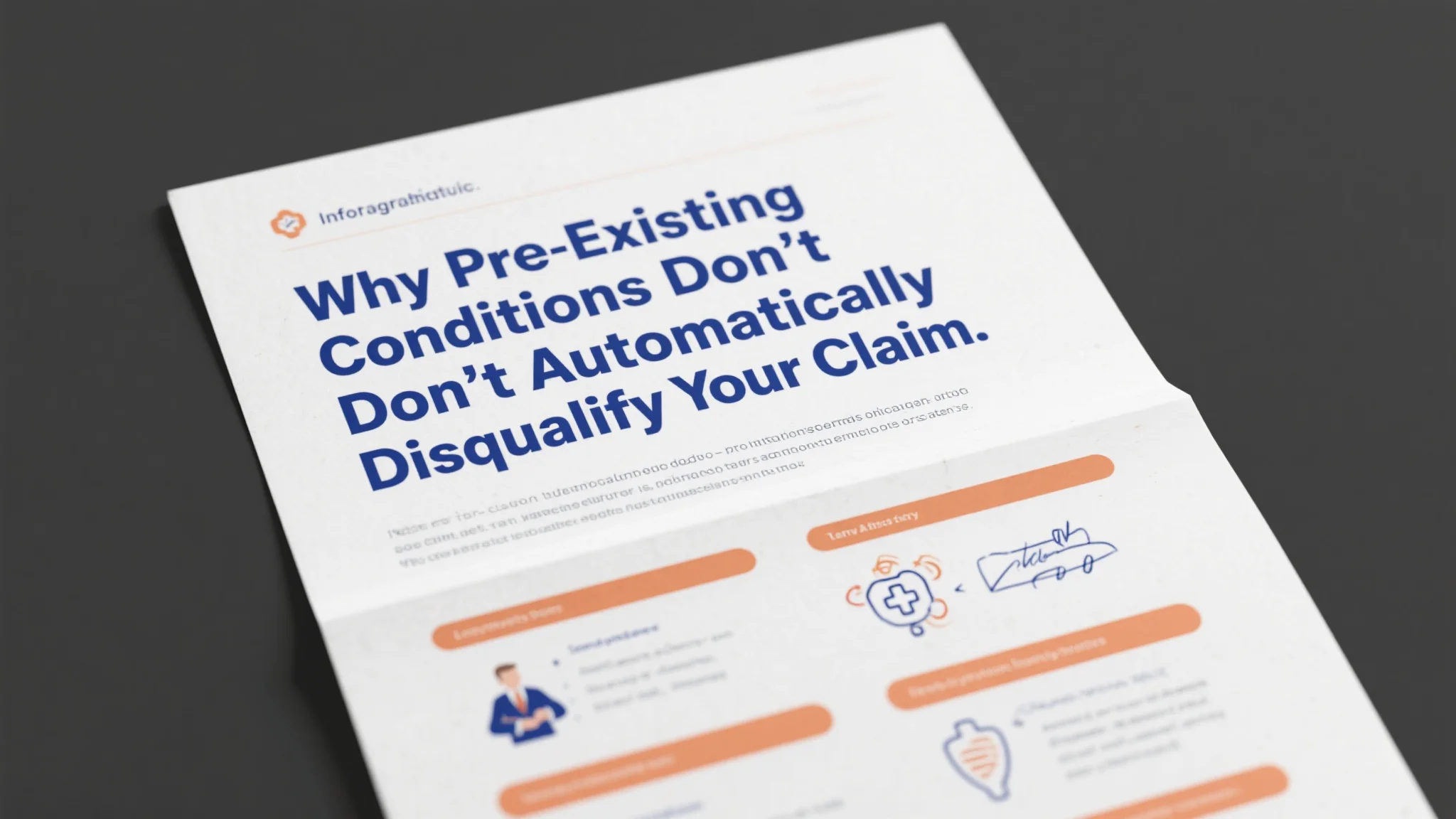Rental car accidents present unique challenges that often result in claim denials at rates significantly higher than standard vehicle insurance claims. Understanding why rental car accident claim denial occurs so frequently requires examining the complex web of insurance policies, coverage gaps, and procedural hurdles that rental car customers face. The statistics are sobering: rental car accident claims are denied at nearly twice the rate of personal vehicle claims, leaving thousands of drivers financially vulnerable when they least expect it. This disparity stems from multiple factors including unclear policy language, overlapping coverage issues, and the inherent complexity of rental car insurance structures that favor companies over consumers.
The Hidden Complexities Behind Rental Car Insurance Coverage
The rental car insurance landscape operates as a labyrinthine system where multiple insurance policies intersect, creating numerous opportunities for coverage disputes and claim denials. When you rent a vehicle, you’re not dealing with a single insurance policy but rather a complex matrix of potential coverage sources that include your personal auto insurance, credit card benefits, the rental company’s insurance, and any additional coverage you purchase at the counter. This multi-layered approach creates what insurance experts call “coverage confusion,” where determining which policy applies in specific circumstances becomes a contentious issue that often results in rental car insurance claim denials.
Personal auto insurance policies typically extend coverage to rental vehicles, but the extent of this coverage varies dramatically between insurers and policy types. Many drivers assume their personal coverage will seamlessly transfer to rental vehicles, but this assumption proves costly when claims arise. Insurance companies frequently deny rental car claims by arguing that the rental vehicle doesn’t qualify under the policy’s definition of a “covered vehicle,” or that specific exclusions apply to rental situations. These exclusions often include restrictions on the type of rental vehicle covered, the purpose of the rental, the duration of the rental period, and the geographic location where the accident occurred. The complexity increases when considering that some personal policies only provide liability coverage for rentals, leaving drivers exposed to comprehensive and collision damages that can amount to tens of thousands of dollars.
Credit card rental car insurance benefits add another layer of complexity to the coverage equation. While many premium credit cards advertise rental car insurance as a valuable benefit, the reality is that this coverage often serves as secondary insurance, meaning it only applies after your primary insurance has been exhausted or denied. Credit card companies maintain strict requirements for coverage activation, including using the card to pay for the entire rental, declining the rental company’s insurance options, and adhering to specific vehicle type and rental duration limitations. When accidents occur, credit card companies frequently deny claims by citing technical violations of these requirements, such as accepting any portion of the rental company’s insurance or using the vehicle for business purposes. The claims process through credit card companies also tends to be significantly slower and more bureaucratic than traditional insurance claims, often taking months to resolve while rental car companies pursue immediate payment for damages.
Rental car companies themselves maintain insurance policies, but these policies primarily protect the company’s interests rather than providing comprehensive coverage for renters. The rental company’s insurance typically covers liability claims against the company but may not extend full protection to the renter in all circumstances. When accidents occur, rental car companies often pursue claims against the renter’s insurance first, and if those claims are denied, they may seek payment directly from the renter while simultaneously filing claims under their own policies. This creates a situation where renters face immediate financial pressure while insurance companies engage in lengthy disputes over coverage responsibility. The rental company’s insurance may also include significant deductibles and exclusions that ultimately leave renters responsible for substantial portions of accident-related costs, even when the rental company’s policy technically provides coverage.
Common Reasons Why Rental Car Claims Face Systematic Denial
Insurance companies employ numerous strategies to deny rental car accident claims, often exploiting the inherent complexities and ambiguities in rental car insurance arrangements. One of the most common denial tactics involves challenging the validity of the rental agreement itself. Insurance adjusters scrutinize rental agreements for any irregularities, unauthorized drivers, or violations of rental terms that can be used to void coverage. For example, if an accident involves a driver who wasn’t explicitly listed on the rental agreement, insurance companies routinely deny claims regardless of whether the unlisted driver had permission to operate the vehicle. Similarly, claims are frequently denied when renters exceed mileage limitations, cross state or international borders without authorization, or use the vehicle for purposes not explicitly permitted in the rental agreement. These technical violations often have no bearing on the actual cause of the accident, but insurance companies use them as grounds for complete claim denial.
Another prevalent reason for prevent rental claim denial involves disputes over the timing and reporting of accidents. Rental car insurance policies typically include strict notification requirements that mandate immediate reporting of accidents to both the rental company and the insurance provider. Insurance companies frequently deny claims when they determine that accidents weren’t reported within the specified timeframe, even when delays were caused by medical emergencies, communication difficulties, or confusion about reporting procedures. The definition of “immediate” varies between policies, with some requiring notification within hours while others allow up to 24 or 48 hours. Insurance adjusters often interpret these requirements strictly, denying claims for reporting delays that may have been entirely reasonable under the circumstances. Additionally, discrepancies between initial accident reports and subsequent insurance claims provide another avenue for denial, as insurance companies argue that inconsistent information indicates fraud or misrepresentation.
Pre-existing damage disputes represent another significant source of rental car claim denials. Rental car companies are supposed to document existing damage before releasing vehicles to customers, but this process is often rushed or incomplete, particularly during busy periods. When accidents occur, insurance companies and rental car companies frequently claim that some or all of the damage existed prior to the rental period, thereby reducing or eliminating their liability for repairs. These disputes can be particularly challenging to resolve because renters rarely have comprehensive photographic documentation of the vehicle’s condition at the time of rental. Insurance adjusters may point to wear patterns, paint oxidation, or repair quality as evidence that damage predates the accident, even when such evidence is circumstantial. The burden of proof often falls on the renter to demonstrate that damage resulted from the reported accident rather than pre-existing conditions, a standard that can be nearly impossible to meet without expert testimony and detailed forensic analysis.

Coverage exclusions specific to rental vehicles provide insurance companies with numerous opportunities to deny claims that would typically be covered under personal auto policies. Many insurance policies include exclusions for commercial use, and insurance companies broadly interpret this exclusion to deny claims involving rental vehicles used for business travel, rideshare services, or delivery purposes. Even when renters use vehicles primarily for personal purposes, any business-related use can trigger these exclusions. Geographic exclusions also frequently apply to rental car claims, with some policies limiting coverage to specific states or regions. International rentals face particularly high denial rates due to policy exclusions that void coverage outside the United States or specific countries. Insurance companies also exploit exclusions related to vehicle type, denying claims involving luxury vehicles, trucks, or specialty vehicles that exceed policy limitations, even when renters were unaware of these restrictions at the time of rental.
Proactive Strategies to Safeguard Against Rental Car Claim Denials
Preventing rental car claim denials requires a comprehensive understanding of your insurance coverage combined with proactive steps to document and protect your interests throughout the rental process. The first critical step involves conducting a thorough review of your existing insurance policies before renting any vehicle. Contact your auto insurance agent or company directly to obtain written confirmation of your rental car coverage, including specific details about coverage limits, deductibles, exclusions, and geographic restrictions. Don’t rely on general policy summaries or assumptions about coverage; request specific information about how your policy applies to rental vehicles in the locations where you plan to travel. If your personal auto insurance provides inadequate rental car coverage, consider purchasing additional coverage or exploring alternative insurance options before your rental period begins. This advance planning prevents the common scenario where drivers discover coverage gaps only after accidents occur.
Credit card rental car benefits require careful evaluation and activation to ensure coverage applies when needed. Review your credit card’s rental car insurance benefits in detail, paying particular attention to coverage limits, exclusions, and activation requirements. Many cardholders assume that simply using their credit card for rental payments automatically activates coverage, but most credit card policies require specific steps such as declining the rental company’s insurance options and using the card for all rental-related charges. Document your compliance with these requirements by saving receipts and rental agreements that show you’ve met all activation criteria. Consider contacting your credit card company before traveling to confirm coverage for your specific rental situation, particularly for international rentals or extended rental periods that may exceed standard coverage limitations. Some premium credit cards offer primary rental car coverage that doesn’t require exhausting other insurance first, making these cards valuable tools for rental car protection.
Comprehensive documentation represents your strongest defense against rental car claim denials. Before accepting any rental vehicle, conduct a thorough inspection and document the vehicle’s condition with detailed photographs or video recordings. Capture images of all sides of the vehicle, the interior, the dashboard showing mileage, and any existing damage, no matter how minor. Ensure that all existing damage is noted on the rental agreement and that you receive a copy of this documentation. Many rental car companies use electronic inspection systems that may not capture all existing damage, so your personal documentation serves as crucial evidence if disputes arise later. During your rental period, maintain records of your activities, routes traveled, and any incidents that occur, even minor ones that don’t result in damage. This documentation helps establish the timeline and circumstances surrounding any accidents and can counter insurance company arguments about pre-existing damage or policy violations.
Understanding and complying with rental agreement terms prevents many common grounds for claim denial. Read rental agreements carefully before signing, paying particular attention to restrictions on drivers, geographic limitations, vehicle use restrictions, and insurance-related clauses. Ensure that all drivers are properly listed on the rental agreement and that you understand any additional fees or requirements for multiple drivers. If you plan to travel across state lines or use the vehicle for any business purposes, verify that these activities are permitted under your rental agreement and insurance coverage. Many rental car claim denials result from technical violations of rental terms that could have been easily avoided with proper planning and compliance. When in doubt, ask rental car company representatives to clarify terms and document their responses in writing.
Immediate and proper accident reporting procedures can make the difference between successful claims and denials. If an accident occurs, prioritize safety first, then begin the documentation and reporting process as quickly as possible. Contact local law enforcement if required by law or if there are injuries, property damage, or disputes about fault. Obtain a police report number and copies of all official reports when available. Notify the rental car company immediately, following their specific reporting procedures and obtaining confirmation numbers or reference numbers for your reports. Contact your insurance company and credit card company (if applicable) within the timeframes specified in your policies, providing detailed information about the accident circumstances. Avoid making statements about fault or accepting responsibility at the accident scene, as these statements can be used against you during the claims process. Instead, focus on gathering factual information, contact details for all parties involved, and photographic evidence of the accident scene and vehicle damage.
Professional legal consultation becomes essential when facing rental car claim denials, particularly for significant accidents involving injuries or substantial property damage. Insurance companies often deny rental car claims knowing that many consumers lack the resources or knowledge to effectively challenge these denials. An experienced attorney specializing in insurance claims can review your case, identify weaknesses in the insurance company’s denial rationale, and pursue appropriate legal remedies. Legal representation becomes particularly valuable when dealing with complex coverage disputes involving multiple insurance policies or when insurance companies engage in bad faith practices such as unreasonable claim delays or inadequate investigations. Many attorneys handle insurance claim cases on contingency fee arrangements, meaning you don’t pay attorney fees unless your case is successful, making legal representation accessible even for consumers facing financial hardship due to claim denials. Early legal consultation can also help prevent common mistakes that strengthen insurance companies’ positions and weaken your claim.



